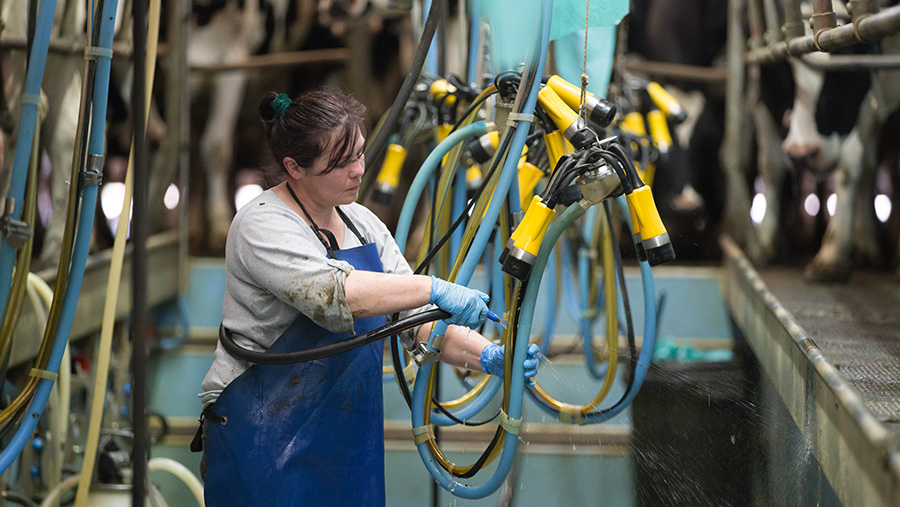Government leaves dairy workers off shortage occupation list
 © Tim Scrivener
© Tim Scrivener A last-ditch attempt to add dairy workers to the government’s shortage occupation list (SOL) has been rejected following a four-month consultation.
This is despite a survey by the Royal Association of British Dairy Farmers (RABDF) in 2016 which found more than 50% of migrant workers on dairy farms were classed as “highly skilled or mainly highly skilled”.
Farmworkers will not be added to the Migration Advisory Committee’s (MAC) list, but occupations like such as butchers, bricklayers and welders will.
See also: Options for farmers to secure migrant labour from 2021
Other farming sectors omitted from the list and facing acute migrant worker shortages include pig, poultry and horticulture.
The MAC launched a six-week call for evidence into the skills shortage back in May, with responses being used to support the evidence-based recommendations delivered to home secretary Priti Patel this month.
In the report, the committee said it “did not recommend adding farmers to the SOL” and that much of the evidence submitted was “related to the more general sector than to this specific occupation code [farmer].”
Because 80% of farmers are classed as self-employed, the benefits to the occupation of being on the SOL were limited, it added.
Real concerns
But the RABDF said there were now real concerns that farms relying on foreign workers could be left with a labour shortage from next year, when the government’s new points-based immigration system is implemented.
RABDF managing director Matt Knight said: “There is no doubt this latest failure to recognise dairy workers will leave the UK dairy industry with a labour shortage, with some of the largest dairy producers in the UK relying on skilled foreign labour.”
He added: “There are real concerns that post 2021, some of our largest, most technically advanced dairy farms could be lost due to their reliance on foreign labour.
“Should this happen, the repercussions would be felt right across the industry, with associated businesses such as feed companies and veterinary practices also affected, let alone the impact on milk supply.”
Defra position
Last week, Defra secretary George Eustice told MPs sitting on the Environment, Food and Rural Affairs (Efra) committee that his department was reviewing options to include a wider seasonal agricultural workers’ scheme in 2021.
But Mr Eustice suggested that British workers who lose their jobs due to the coronavirus crisis could help plug the migrant labour gap in agriculture.
